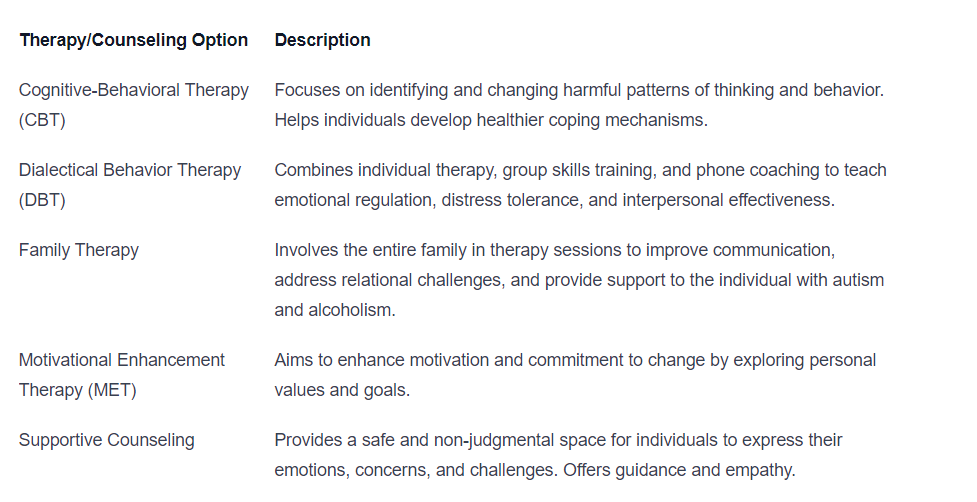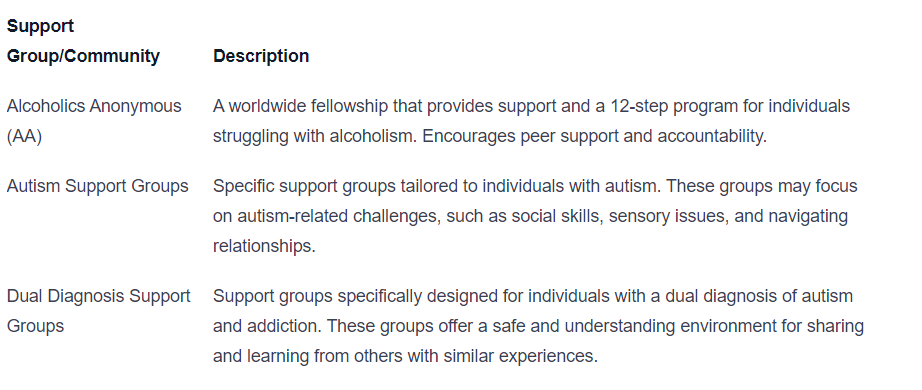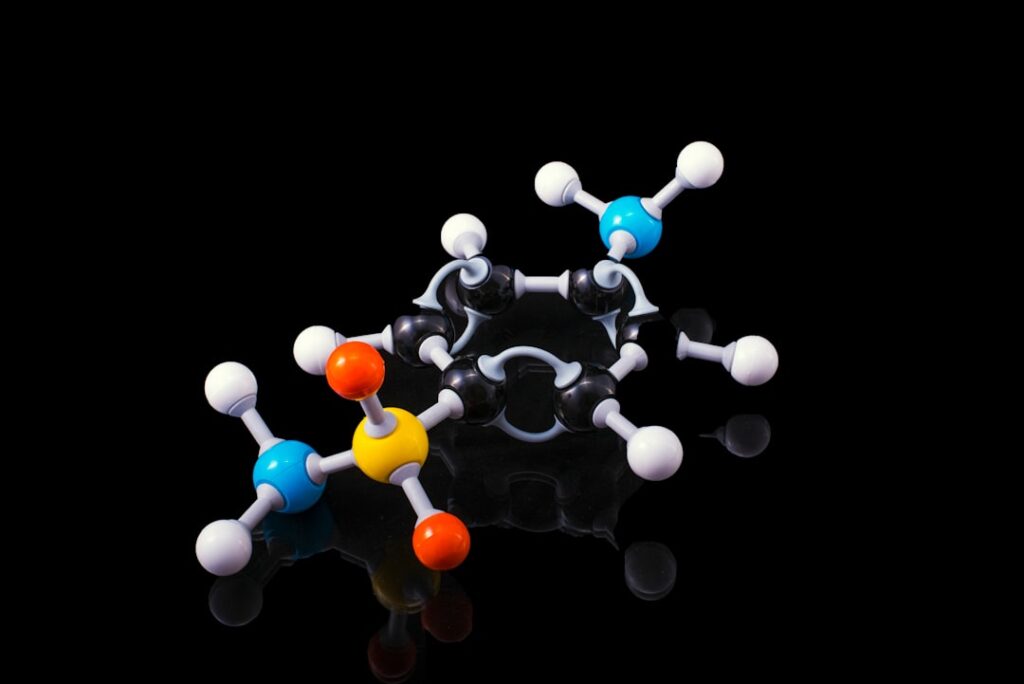The Overlapping Epidemics
Autism Spectrum Disorder (ASD) and Alcoholism are two separate but interconnected conditions that have gained significant attention in recent years. Understanding both disorders is crucial in unraveling the link between them.

Understanding Autism Spectrum Disorder (ASD)
Autism Spectrum Disorder (ASD) is a developmental disorder characterized by difficulties in social interaction, communication, and repetitive behaviors. It is a complex condition that affects individuals differently, with a wide range of symptoms and severity.
ASD affects approximately 1 in 54 children in the United States, making it a prevalent condition that requires attention and understanding. The exact cause of ASD is still unknown, but research suggests a combination of genetic and environmental factors play a role in its development.
Alcoholism as a Form of Addiction
Alcoholism, also known as alcohol use disorder, is a chronic and progressive disease characterized by the inability to control or stop drinking despite negative consequences. It is a form of addiction that affects people from all walks of life.
Alcoholism is a significant public health concern, with an estimated 14.4 million adults in the United States struggling with this condition. It can have devastating effects on individuals and their families, leading to physical, mental, and social problems.
Understanding the nature of alcoholism is essential in recognizing its link to other conditions, including autism. The relationship between alcoholism and ASD goes beyond mere coincidence, as research suggests shared genetic and environmental factors may contribute to the co-occurrence of these conditions.
By exploring the overlapping epidemics of autism and alcoholism, we can gain a deeper understanding of the connection between these two complex conditions. This understanding can pave the way for better diagnosis, treatment, and support for individuals who face the challenges of both ASD and alcoholism.
The Link Between Autism and Alcoholism
Autism Spectrum Disorder (ASD) and alcoholism share a complex and intriguing connection. In this section, we will explore the prevalence of alcoholism in individuals with ASD and the shared genetic and environmental factors that contribute to this link.
Prevalence of Alcoholism in Individuals with ASD
Research has shown that individuals with ASD may have an increased risk of developing alcoholism compared to the general population. While the exact prevalence rates vary, several studies have indicated a higher prevalence of alcohol use disorder among individuals with ASD.

This data highlights the importance of recognizing and addressing the potential co-occurrence of alcoholism in individuals with ASD. It is crucial for healthcare professionals and support networks to be aware of this connection to provide appropriate care and intervention.
Shared Genetic and Environmental Factors
The link between autism and alcoholism is not solely due to coincidence. There are shared genetic and environmental factors that contribute to the increased risk of alcoholism in individuals with ASD.
Genetic Factors play a significant role in both conditions. Studies have identified certain genes associated with both autism and alcoholism, suggesting a genetic overlap. These shared genetic variations may influence the brain’s reward system, contributing to the development of addictive behaviors.
Environmental Factors also come into play. Individuals with ASD often face unique challenges, such as difficulties in social interactions and coping with sensory sensitivities. These challenges can lead to increased stress levels and feelings of isolation. Some individuals with ASD may turn to alcohol as a self-medication or coping mechanism to alleviate these difficulties.
It is important to note that not all individuals with ASD will develop alcoholism, and not all individuals with alcoholism will have ASD. The link between the two conditions is a complex interplay of various factors.
By understanding the prevalence of alcoholism in individuals with ASD and the shared genetic and environmental factors, we can work towards better support and intervention strategies. Recognizing the potential co-occurrence of alcoholism in individuals with ASD allows for tailored treatment approaches and a holistic understanding of their unique needs.
Biological Mechanisms
Understanding the biological mechanisms that contribute to the connection between autism and alcoholism can provide valuable insights into the overlapping epidemics. Two key factors in this connection are brain chemistry and impaired executive functioning.
Brain Chemistry and Neurotransmitters
Individuals with autism and alcoholism often exhibit abnormalities in brain chemistry and neurotransmitter function.
Neurotransmitters are chemical messengers in the brain that facilitate communication between neurons. Imbalances in neurotransmitter levels can affect mood, behavior, and cognitive function.

Research suggests that individuals with autism may have altered levels of these neurotransmitters, which can contribute to difficulties in social interaction, communication, and emotional regulation. Alcohol, being a psychoactive substance, can further influence neurotransmitter levels, leading to temporary relief from social anxiety or sensory overload commonly experienced by individuals with autism.
Impaired Executive Functioning
Executive Functioning refers to a set of cognitive processes that help individuals plan, organize, and carry out tasks efficiently. Both autism and alcoholism can disrupt executive functioning, albeit through different mechanisms.
In autism, impaired executive functioning is a core feature and can manifest as difficulties with impulse control, flexibility, and decision-making. This can contribute to challenges in managing alcohol consumption and making responsible choices regarding alcohol use.
Alcoholism, on the other hand, can directly impair executive functioning due to its effects on the brain. Excessive alcohol consumption can interfere with cognitive processes such as attention, working memory, and problem-solving. This impairment can further hinder individuals with autism in effectively managing their symptoms and making healthy lifestyle choices.
Understanding the biological mechanisms underlying the connection between autism and alcoholism highlights the complex interplay between brain chemistry and cognitive function. By recognizing these factors, healthcare professionals can develop targeted interventions and treatment strategies that address both autism and alcoholism simultaneously, promoting better outcomes for individuals affected by these co-occurring conditions.
Social and Environmental Factors
Understanding the connection between autism and alcoholism involves exploring various social and environmental factors that contribute to this link. Two important factors to consider are coping mechanisms and self-medication, as well as social isolation and peer pressure.
Coping Mechanisms and Self-Medication
Individuals with autism often face unique challenges in navigating social interactions and managing sensory sensitivities. These challenges can lead to feelings of anxiety, stress, and frustration. As a result, some individuals may develop coping mechanisms to alleviate these negative emotions. Unfortunately, one such coping mechanism can be turning to substances like alcohol as a form of self-medication.
Alcohol may temporarily provide relief from the overwhelming sensory experiences or social difficulties faced by individuals with autism. It can create a sense of relaxation or numbness, allowing individuals to temporarily escape from the challenges they face. However, relying on alcohol as a coping mechanism can quickly lead to dependency and the development of alcoholism.
Social Isolation and Peer Pressure
Social Isolation is another significant factor that can contribute to the link between autism and alcoholism. Individuals with autism often experience difficulties in forming and maintaining social relationships. The challenges they face in social interactions can lead to feelings of loneliness and isolation.
In an attempt to fit in or overcome feelings of social exclusion, individuals with autism may encounter peer pressure to engage in risky behaviors, including alcohol consumption. The desire to belong and be accepted can sometimes override the understanding of the potential negative consequences of alcohol use.
The interplay between social isolation, peer pressure, and the need for social connection can create a vulnerable environment for individuals with autism, increasing their susceptibility to alcoholism.
Understanding these social and environmental factors is essential in addressing the connection between autism and alcoholism. By recognizing the role of coping mechanisms, self-medication, social isolation, and peer pressure, appropriate support and interventions can be developed to help individuals with autism navigate these challenges in healthier ways.
Please note that while these factors contribute to the link between autism and alcoholism, it is important to approach each case individually, considering the unique experiences and needs of each person.
The Impact on Treatment
Individuals with co-occurring conditions of autism and alcoholism face unique challenges when it comes to diagnosis and treatment. Understanding these challenges is crucial for providing effective care and support.
In this section, we will explore the difficulties in diagnosing and treating co-occurring conditions and discuss the importance of integrated approaches for dual diagnosis.
Challenges in Diagnosing and Treating Co-occurring Conditions
Diagnosing co-occurring autism spectrum disorder (ASD) and alcoholism can be complex due to overlapping symptoms and diagnostic criteria. Both conditions can present with social and communication difficulties, making it challenging to differentiate between the two. Additionally, individuals with ASD may have difficulty expressing their thoughts and emotions, further complicating the diagnostic process.
Traditional treatment approaches for alcoholism may not adequately address the unique needs of individuals with ASD. The sensory sensitivities and executive functioning impairments associated with autism can impact the effectiveness of traditional addiction treatment methods. It is crucial for healthcare professionals to have a comprehensive understanding of both conditions to ensure accurate diagnosis and appropriate treatment planning.
Integrated Approaches for Dual Diagnosis
Integrated approaches that address both autism and alcoholism simultaneously are essential for effective treatment. These approaches recognize the interconnected nature of the conditions and aim to provide holistic care that considers the unique challenges faced by individuals with co-occurring conditions.
One approach is to provide specialized treatment programs that are tailored to the needs of individuals with ASD and alcoholism. These programs may incorporate behavioral therapies, such as Applied Behavior Analysis (ABA), to address social and communication difficulties associated with autism. Additionally, therapies that focus on coping skills and emotional regulation can be beneficial for individuals with co-occurring conditions.
Incorporating support from multidisciplinary teams is another important aspect of integrated approaches. These teams may include psychologists, psychiatrists, addiction specialists, and occupational therapists who work collaboratively to develop individualized treatment plans. This approach ensures that all aspects of an individual’s diagnosis, including both autism and alcoholism, are considered and addressed.
Furthermore, support from peer groups and communities can play a significant role in the treatment process. Support groups that specifically cater to individuals with dual diagnosis can provide a safe and understanding environment for individuals to share their experiences, gain insights, and receive ongoing support.
By recognizing the challenges in diagnosing and treating co-occurring conditions and implementing integrated approaches, healthcare professionals can provide individuals with autism and alcoholism the comprehensive support they need for their unique circumstances. Through a combination of specialized treatment programs, multidisciplinary collaboration, and community support, individuals with dual diagnosis can be empowered to lead fulfilling lives while managing both conditions effectively.
Support and Resources
Individuals with both autism and alcoholism may benefit from various support and resources to address their unique needs. Therapy and counseling options, as well as support groups and communities, play a significant role in providing assistance and guidance.
Therapy and Counseling Options
Therapy and Counseling can be valuable tools for individuals with autism and alcoholism. These interventions aim to address the underlying issues and provide strategies for managing both conditions. Here are some therapy and counseling options commonly utilized:

The choice of therapy or counseling option depends on the individual’s specific needs and preferences. It is important to work with a qualified mental health professional experienced in working with individuals with autism and comorbid alcoholism.
Support Groups and Communities
Being part of support groups and communities can provide individuals with autism and alcoholism a sense of belonging and understanding. These groups offer a space to share experiences, learn from others, and receive support from individuals who have faced similar challenges. Here are some examples of support groups and communities:

Support groups and communities can be found both in-person and online. It is essential to find a group or community that is inclusive, supportive, and aligns with the individual’s specific needs and preferences.
By accessing therapy and counseling options, as well as participating in support groups and communities, individuals with autism and alcoholism can find the necessary support, guidance, and understanding to navigate their unique circumstances.
Conclusion
In conclusion, the connection between autism and alcoholism is complex and multifaceted. Biological factors such as brain chemistry and impaired executive functioning, as well as social and environmental factors, contribute to this link. Understanding these factors is crucial for accurate diagnosis and effective treatment of co-occurring conditions.
Integrated approaches that address both autism and alcoholism simultaneously are essential for promoting better outcomes for individuals with dual diagnosis. These approaches incorporate specialized treatment programs, multidisciplinary collaboration, community support, and therapy options to meet the unique needs of each individual.
By recognizing the challenges faced by individuals with autism and alcoholism and providing comprehensive support, healthcare professionals can help individuals lead fulfilling lives while managing both conditions effectively. With continued research and understanding of this complex link, we can work towards developing more targeted interventions that improve outcomes for those affected by co-occurring autism spectrum disorder (ASD) and alcoholism.
Sources
- https://www.ncbi.nlm.nih.gov/pmc/articles/PMC5530804/
- https://www.spectrumnews.org/opinion/viewpoint/link-autism-alcoholism-needs-exploration/
- https://www.autismspeaks.org/expert-opinion/autism-and-addiction
- https://www.ncbi.nlm.nih.gov/pmc/articles/PMC5988333/
- https://pubmed.ncbi.nlm.nih.gov/29197734/
- https://journals.sagepub.com/doi/full/10.1177/1362361314565732

 We've just released an article!
Check out our blog!
We've just released an article!
Check out our blog!



